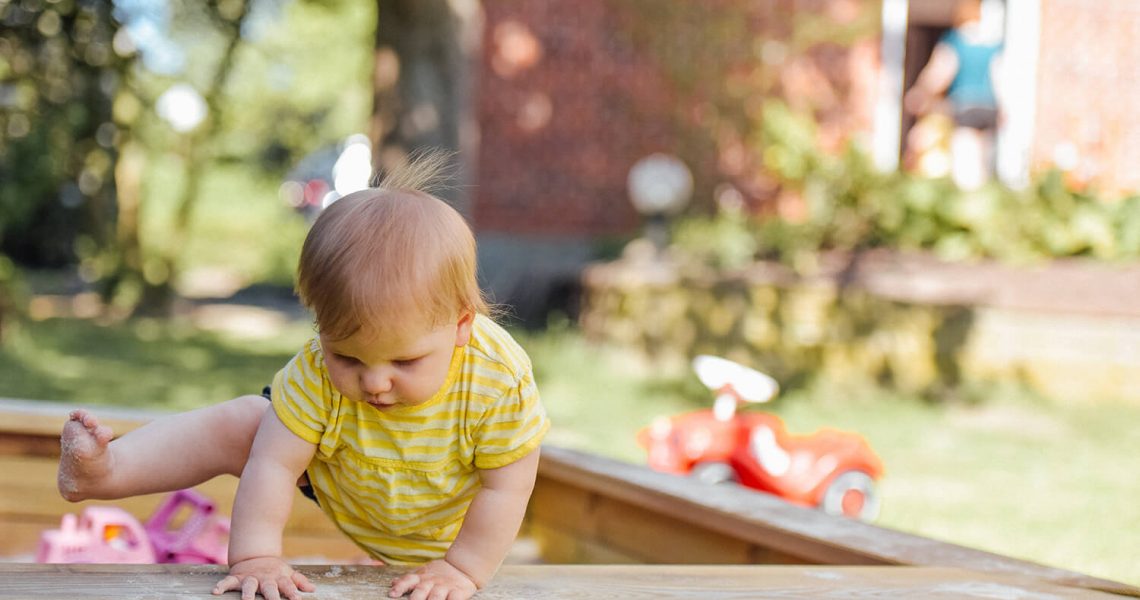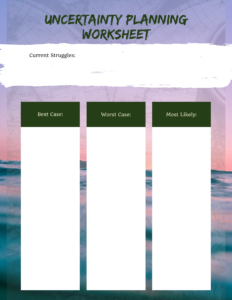

Elizabeth McGinnis
Summer with kids and uncertainty
Maybe you’ve gotten a grip on handling working, kids, and teaching. Maybe you’re still underwater. Maybe you are both in the same day. No matter your situation, the idea of this lasting for much longer is a little overwhelming. And the idea of trying to figure out the summer when you have no idea when anything will resume feels a little daunting. However, having a plan can start to build confidence and resiliency into your attitude. And the more you can convey that attitude to your kids and family, the more that creates calm and order in the home making life a little bit easier for everyone. So here is a way to start to make plans for the summer when everything is up in the air.
1. Be honest with yourself about your abilities and your mental health.
I am 100% serious here. I understand that you love your kids and want to protect them from everything, including the pandemic and the fear of the pandemic, in this world. You wouldn’t be reading this or thinking of the summer if that wasn’t true. I know that your kids are scared and bored and confused and anxious. Some of them are wondering what this means for college, some of them are driving you crazy with their need to be entertained, and some of them are having worsening nightmares and regression in behavior because they are exerting control over their anxiety the only way they know how. In any and all cases, you are only human and you may want to soften the blow. In all cases, you’ve already had to break so much bad news to them and now you have to face another round with summer plans. The New York Times had a great article talking about how to talk to your kids about disappointment. It’s time to dust it off for another look as we have to face telling our kids about the new round of changes.
Before you have that conversation with your kids though, start with these three steps. Start with sitting down with yourself and think about what you can do for yourself and your family, not for the next week, but for the next several months. If that means you need a babysitter or a teacher, or a place to send your kids, then stop beating yourself up, and let’s find a way together to make that real and safe. If you and your partner disagree with what that means, take a deep breath and be honest with each other, without judgements, on where you are each standing in terms of mental health. If she isn’t feeling the strain because she has an office she takes meetings from all day or he is freaking out about every package and every need to leave the house, just listen. Just listen to each other and write down each of your fears, concerns and difficulties. Each fear and concern is real and each one needs to be acknowledged. Only when you say them out loud, acknowledge them, and look at them as a team will you have a chance of changing what comes next. This is best done after the kids go to sleep. Right down the rules because you will both be tired and irritated and not want to do this activity. Having the rules posted puts you both on the same page so no one has to be the gatekeeper.
2. Get the facts you can.
What I mean by that is that you probably had a plan. Whether that was 2 weeks at a local camp, a month at a lake house, or using your grandmother for babysitting, learn where all of those stand today. I can’t know about all the different situations out there but I do know two major realities. The first is that childcare is considered “essential services” in most states including California. There are limits on what that means and who that applies to but first research your situation. So find out what is open right now and what will be open in the worst case scenario. Schools and daycare’s are closed but having a nanny or a babysitter is still a possibility. While a camp might be closed, they might be maintaining a list of their staff who are taking on individual families for daycare. In addition, many educational and child focused business’s are finding ways to offer online services. For instance, many dance and yoga studios are offering free or reduced online courses for different age groups. So find out what exists today. Chances are, these services will extend through the summer or will be expanded on during the summer so know what your options are. For instance, you might not feel comfortable with a babysitter right now but it is still worthwhile to collect a list of options. At some point, “Shelter-In-Place” will lift in your county or town and you might feel open to help at that time. So make sure that when that happens, you know what is available. Here are two lists of online summer camps. While they might not have been your first choice, give them an honest look and see if they meet your needs. And don’t be afraid to ask about financial aid right now. Many camps have a system in place for support for families who need them.
3. Best case, worst case, most likely case.
Okay, you’ve done the hard work of being honest with yourself (and hopefully your partner) and you’ve done your research on what is and is not available for right now and the summer. Now what? Now you make a worst case, best case, and most likely case plan.

This is where you fill in the details with what you learned in the first two steps. For example:
- Struggle: The kids go crazy in the afternoon’s so the schedule, your ability to work, and your patience go out the window causing fights for the rest of the day.
- The FACTS: School is closed for the rest of the year. All your camps have been closed. Your travel plans have already been canceled. All your usual babysitter’s are unavailable. However, a friend has a condo up by a lake, and the teenager down the streets is looking for a job. Also, your youngest has said that they really want to learn how to play an instrument.
- Best Case: The YMCA reopens and offers a weekly camp starting next month and has availability, grandma can suddenly fly in for a week to give you a break, and you’ve found a tutor to teach your child guitar once a week. And your friend feels totally fine with you visiting the lake for a week over the forth of July.
- Worst Case: All camps are closed all summer, grandma can’t travel at all, and you can’t find a teacher/class/tutor in guitar. Friend is not comfortable with anyone using the lake house and you can’t afford to take that much time off work anyway. Nothing changes.
- Most Likely: YMCA does not re-open but the teenager down the street is willing to come over for three hours each afternoon during the week to give you a break. Grandma can’t travel but she is willing to play virtual games with the kids for an hour on Tuesday and Thursday mornings. And you were able to find an online music camp for a week in July. Your friend isn’t sure how she feels about the Lake House but has mentioned that if Shelter-In-Place is lifted and your willing to pay for professional cleaners before and after, that you could use it for a long weekend in August.
These can be as broad or as detailed as you want but I would encourage you to go through this exercise for each struggle or pain point. This might be for all your kids or per kid depending on your situation. No matter what, this exercise will help you and your family get a firmer grip on what your options are and what each of you are struggling with in these circumstances right now. It is okay to be bummed and disappointed about your plans. No matter how small or big those plans were, they were important to you and provided you with something to look forward to. In going through an exercise to embrace the new normal that we are living in, you are also going through the exercise of creating new experiences to appreciate and look forward to. And all of us, child and parent alike, could do with some hope right now.
If this speaks to you an you’re looking for help in California, please schedule a consult.


